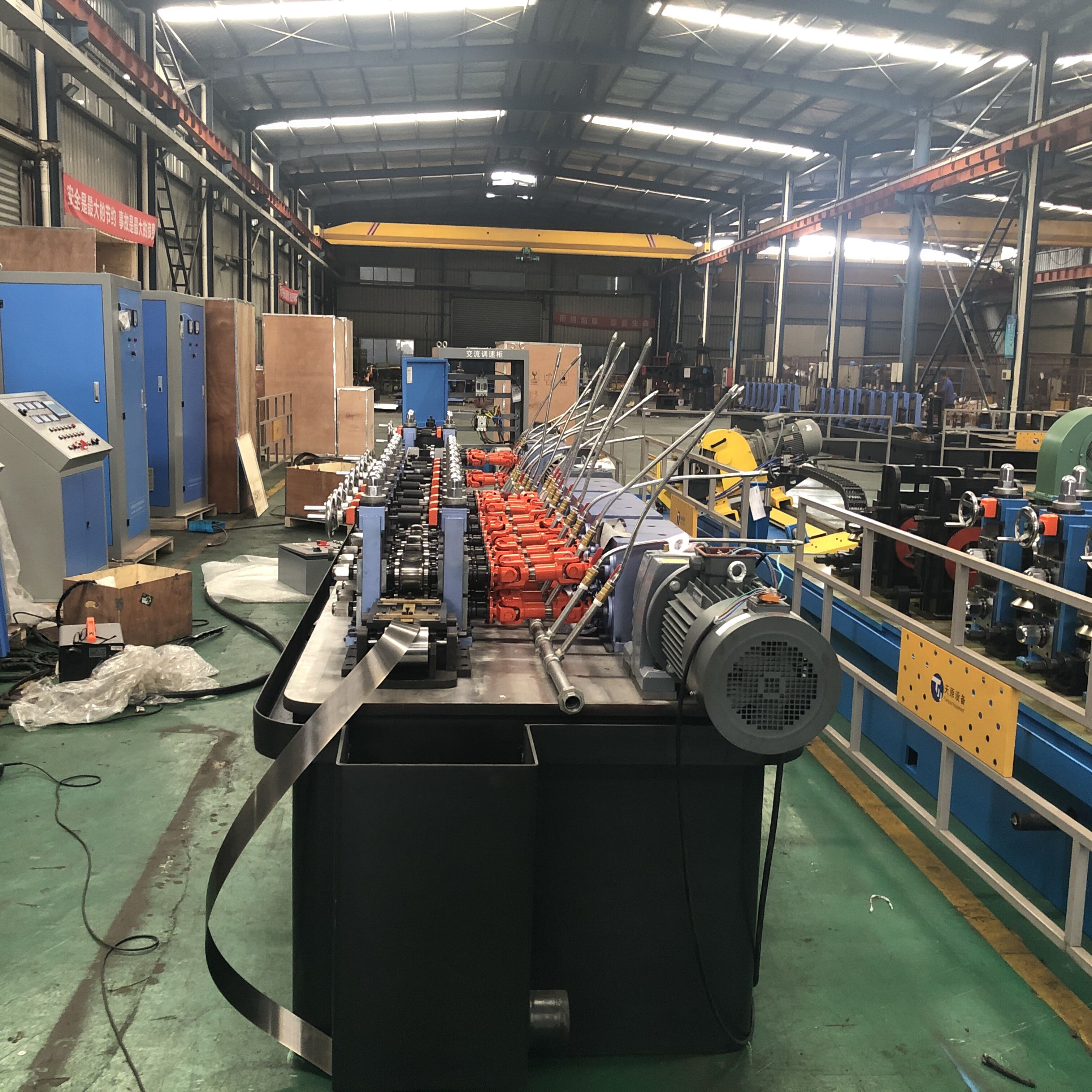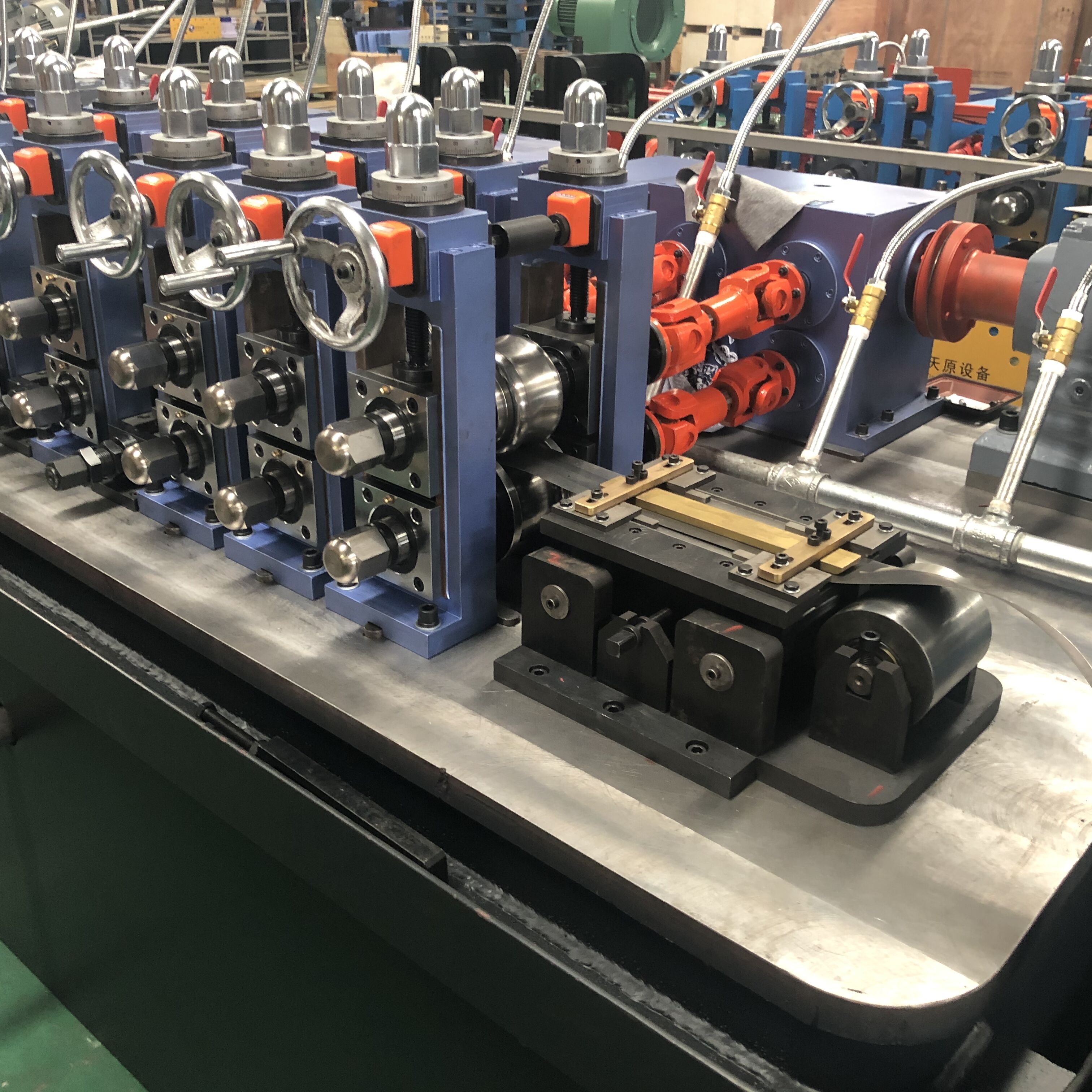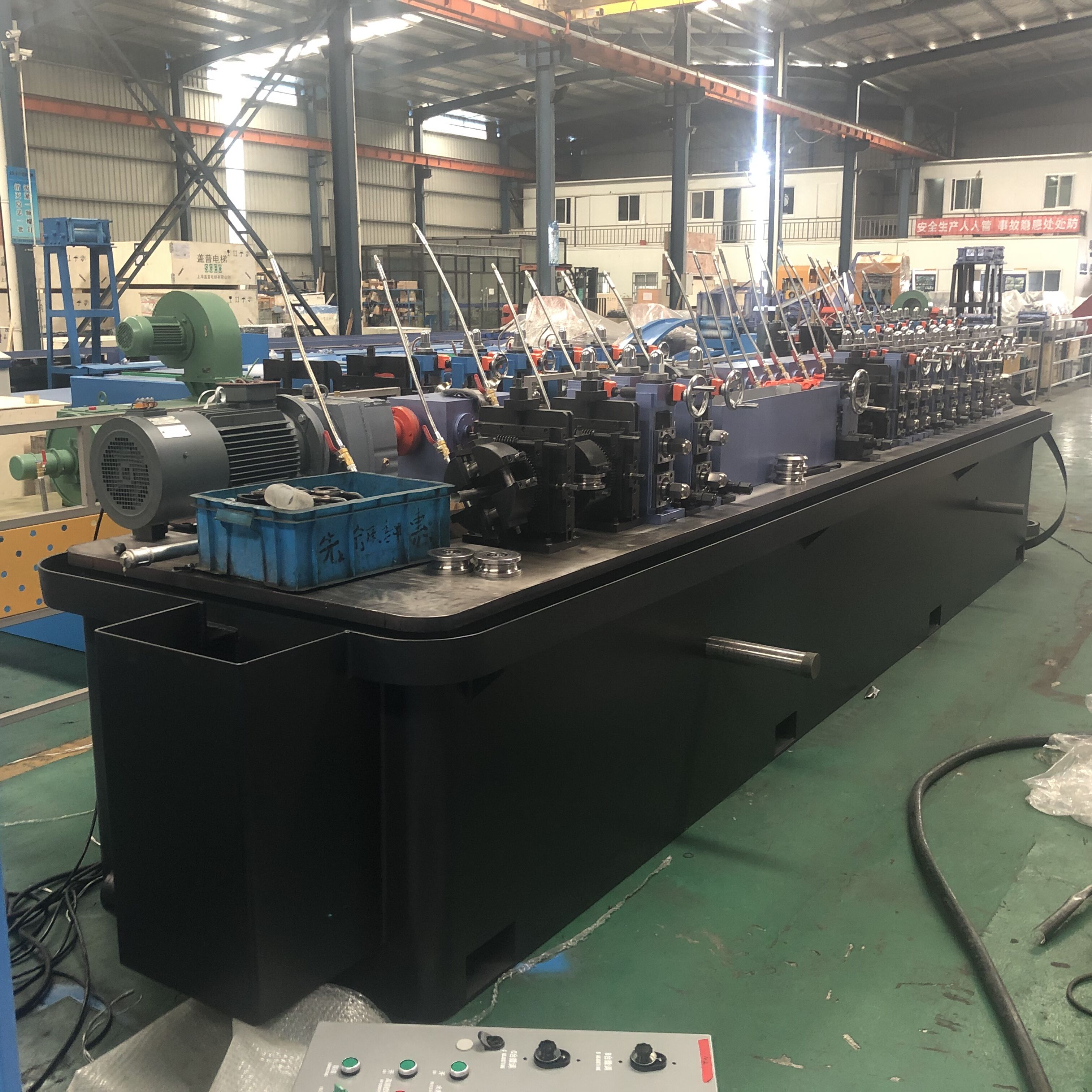eRW पाइप मिल
एक ERW पाइप मिल उच्च-गुणस्तरको विद्युत प्रतिरोध वेल्डिंग पाइपहरू निर्माण गर्न डिजाइन गरिएको सुविधाको निशाना हो। यो अग्रणी निर्माण प्रणाली धातु आकारणी र वेल्डिंग प्रक्रियाहरूको बहुमुखीय चरणहरूलाई जोड्छ, जसले तपाईंलाई ठीक आकारमा बनाएका पाइपहरू प्रदान गर्दछ। मिलले धातु कोइल वा स्ट्रिपलाई फार्मिङ्ग रोलहरूको माध्यमबाट लगातार खिसकाउँदछ, जसले सपट्टो सामग्रीलाई बेलनाकार रूपमा बदल्दछ। त्यसपछि, किनारहरूलाई ठीक रूपमा समायोजित गरी विद्युत प्रतिरोध वेल्डिंग प्रौद्योगिकीप्रयोग गरेर वेल्ड गरिन्छ, जसले रोबस्ट र एकसमान सीमा बनाउँदछ। मिलले तापमात्रा, दबाव, र वेल्डिंग करेन्ट जस्ता महत्वपूर्ण पैरामीटरहरूलाई निगरानी गर्न अग्रणी नियन्त्रण प्रणालीहरू समाविष्ट गर्दछ, जसले नियमित वेल्ड गुणस्तर सुनिश्चित गर्दछ। आधुनिक ERW पाइप मिलहरूमा स्वचालन बर्तन प्रणाली, ऑफ़्लाइन परीक्षण उपकरण, र ठीक आकारमा नियन्त्रण मेखनिज्महरू समाविष्ट छन्। यी सुविधाहरू छोटो व्यासहरू भन्दा बढी जो ढाङ्गाको अनुप्रयोगहरूमा उपयोग गरिन्छ त्यसैले तेल र गैस परिवहनमा प्रयोग गर्ने बढी आकारहरू तकि निर्माण गर्न सक्छन्। निर्माण प्रक्रियामा किनार तयारी, आकारणी, वेल्डिंग, आकार नियन्त्रण, सीधो बनाउने, र अन्तिम परीक्षण जस्ता आवश्यक कदमहरू एक लगातार निर्माण लाइनमा एकीकृत छन्। मिलको विविधताले विभिन्न दीवारको मोटाई र लामिचाहिं पाइपहरू निर्माण गर्न सक्छ, जो विभिन्न उद्योगीय निर्दिष्टियो र मानकहरूमा अनुरूप छन्।


